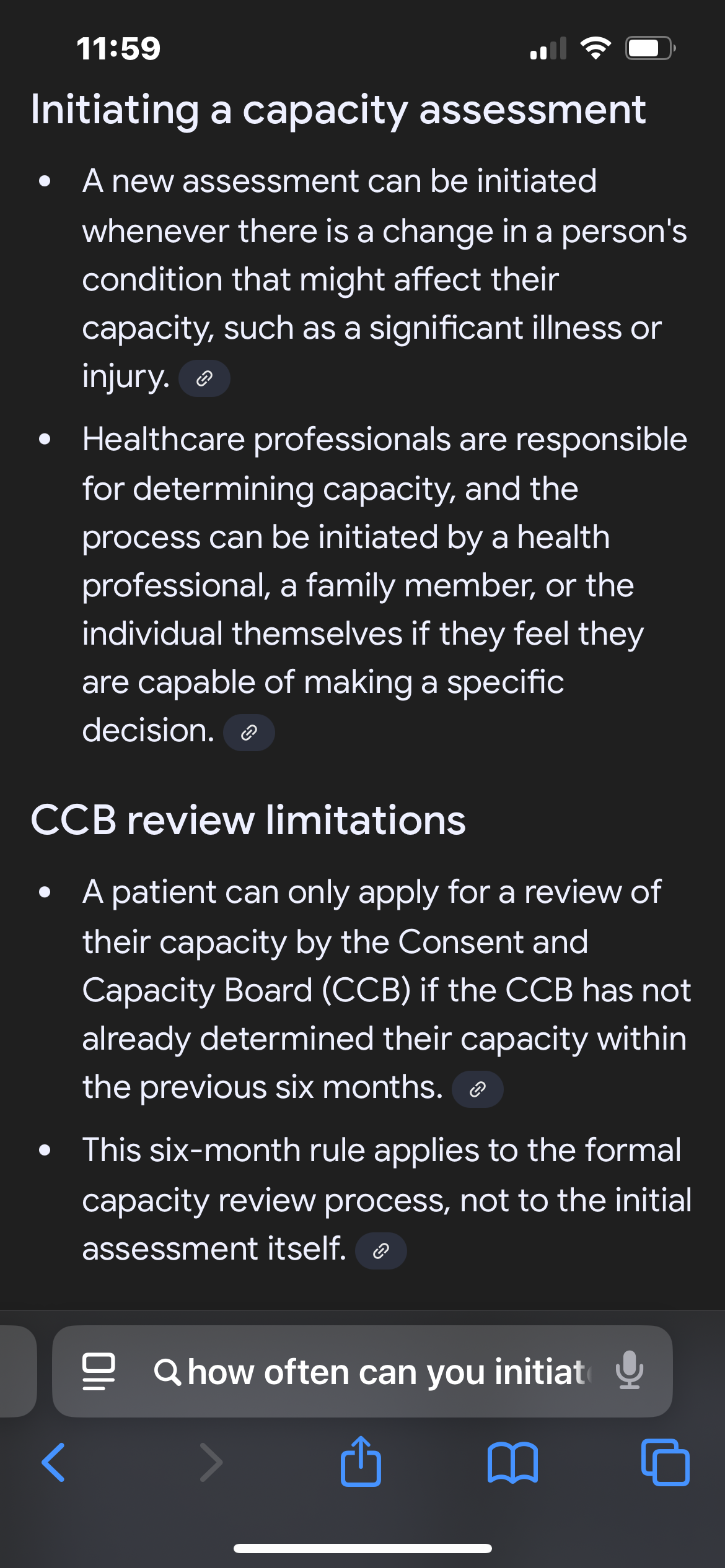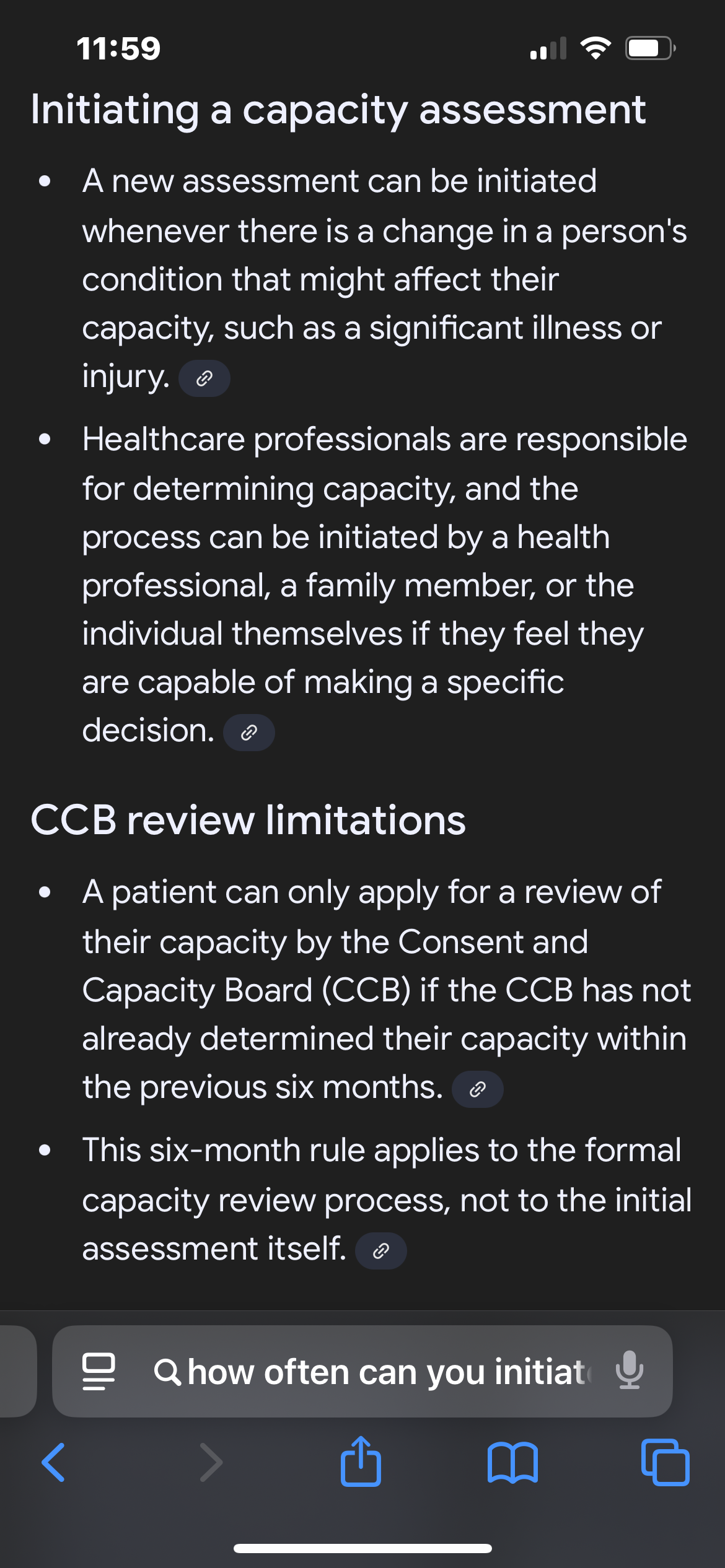I want to discus my mental capacity with the two part test in mind with Dr. Rogers. I am mentally capable according to the test.
I want to have a conversation with Dr. Rogers about whether or not I am currently mentally capable per
— Steven Reynen (@StevenReynen) October 23, 2025
The two-part test: To be found capable, a person must meet both parts of this test:
Understanding: They must be able to understand the information relevant to the decision.…

In this case, the reviewing judge applied the proper standard of review and correctly held that the Board’s finding was unreasonable. The Board’s determination of incapacity turned on two findings: that the respondent was in “almost total” denial of a mental disorder, and that he failed to appreciate the consequences of his decision. A careful review of the evidence demonstrates that there is no basis for either of these findings. Although the patient did not conceive of the condition as an illness, he was quite aware that his brain did not function normally. There was also no evidence that the proposed medication was likely to ameliorate the respondent’s condition. Moreover, the respondent appreciated the intended effects of the medication. The Board’s conclusion that treatment would improve his chances at future review board hearings is entirely speculative. There was no basis for the Consent and Capacity Board to find that a possible benefit of treatment would be the resumption of the respondent’s work as a physicist. Lastly, the respondent was never asked at the hearing whether he understood the possibility that his condition could worsen without treatment. Consequently, there is no support for the Board’s ultimate finding of incapacity.
In addition, the Board misapplied the statutory test for capacity. The interpretation of this legal standard is a question of law. No deference is owed to the Board on this issue and a correctness standard of review is to be applied. Although the Board found the respondent failed to appreciate the risks and benefits of treatment, it neglected to address whether the reasons for that failure demonstrated an inability to appreciate those risks and benefits. Furthermore, the Board’s reasons indicate that it strayed from its legislative mandate, which was to adjudicate solely upon the patient’s capacity. The wisdom of the respondent’s treatment decision is irrelevant to that determination. The Board improperly allowed its own conception of the respondent’s best interests to influence its finding of incapacity.
I can't wait to see what Dr. Rogers EXPLICITLY says are the REASONABLY FORESEEABLE CIRCUMSTANCES.
— Steven Reynen (@StevenReynen) October 23, 2025
Dr. Rogers says she will draft an official written document in the coming months before I can do my next Form A application to the CCB (relevant information and her opinion about the reasonably foreseeable consequences). My primary case law will be the SSC’s decision re: Starson…
— Steven Reynen (@StevenReynen) October 23, 2025



